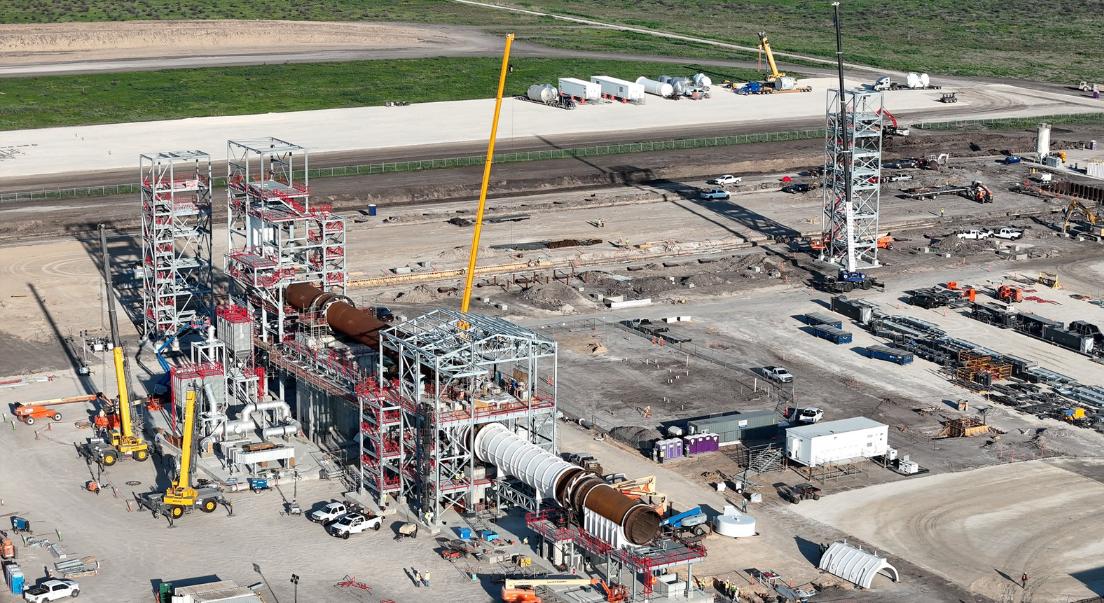
What Lithium Refineries Are Currently Operating in the U.S.?
Yes, there are several lithium refineries currently being developed in the United States, including significant projects by companies like Albemarle, Tesla, and Stardust Power. These facilities aim to enhance domestic lithium production, crucial for electric vehicle batteries and renewable energy storage, thereby reducing reliance on foreign sources.
What lithium refineries are currently under development in the U.S.?
Several key lithium refineries are under development across the United States:
- Albemarle Corporation: A $1.3 billion lithium hydroxide refinery is set to be built in South Carolina, with an initial capacity of 50,000 metric tons per year, expandable to 100,000 metric tons.
- Tesla: The company is constructing a lithium refinery near Corpus Christi, Texas, which will utilize an innovative acid-free refining process aimed at producing battery-grade lithium hydroxide.
- Stardust Power: This company plans to build a refinery in Muskogee, Oklahoma, with a capacity of up to 50,000 metric tons annually, focusing on sourcing lithium from brine.
| Company | Location | Capacity (metric tons/year) | Expected Completion |
|---|---|---|---|
| Albemarle | South Carolina | 50,000 (expandable to 100,000) | 2027 |
| Tesla | Texas | Not specified | Under construction |
| Stardust Power | Oklahoma | 50,000 | Groundbreaking in 2025 |
How do these refineries contribute to domestic lithium production?
These refineries play a crucial role in bolstering domestic lithium production by processing raw materials sourced from local mines and brine deposits. By refining lithium within the U.S., companies can reduce dependency on imports, particularly from countries like China, which currently dominates the global lithium supply chain.This shift not only enhances national security regarding critical mineral supplies but also aligns with government policies aimed at promoting domestic manufacturing and clean energy initiatives.
Why are companies like Tesla and Albemarle investing in lithium refining?
Companies such as Tesla and Albemarle are investing heavily in lithium refining due to several factors:
- Increased Demand: The demand for electric vehicles (EVs) is skyrocketing, necessitating a reliable supply of refined lithium for battery production.
- Government Incentives: The Inflation Reduction Act offers subsidies for domestic production of critical minerals, making investments more financially attractive.
- Supply Chain Resilience: By establishing local refining capabilities, these companies can mitigate risks associated with global supply chain disruptions.
What innovative technologies are being implemented in these refineries?
Innovative technologies being employed include:
- Acid-Free Processing: Tesla’s facility aims to use a more environmentally friendly method that eliminates hazardous reagents typically used in traditional refining processes.
- Direct Lithium Extraction (DLE): Stardust Power plans to utilize DLE technology for extracting lithium from brine sources efficiently while minimizing environmental impact.
These advancements not only improve efficiency but also align with sustainability goals by reducing chemical waste and energy consumption during the refining process.
How will these refineries impact local economies and job markets?
The establishment of lithium refineries is expected to have significant positive impacts on local economies:
- Job Creation: Each facility will create hundreds of jobs during construction and ongoing operations. For instance, Tesla’s refinery is projected to create approximately 1,000 construction jobs and around 250 permanent positions.
- Economic Growth: Increased activity in the area can stimulate local businesses and improve infrastructure through investment and development initiatives.
- Skill Development: Training programs and partnerships with local educational institutions can enhance workforce skills aligned with emerging industries.
| Economic Impact | Description |
|---|---|
| Job Creation | Hundreds of direct jobs during construction |
| Local Business Growth | Increased demand for services and supplies |
| Infrastructure Development | Improved transportation and utilities |
What challenges do lithium refineries face in the U.S.?
Despite their potential benefits, lithium refineries encounter several challenges:
- Regulatory Hurdles: Navigating environmental regulations can be complex and time-consuming.
- Public Opposition: Local communities may express concerns about environmental impacts or land use changes associated with new facilities.
- Supply Chain Issues: Securing consistent access to raw materials for refining can be challenging amidst fluctuating market conditions.
Addressing these challenges requires careful planning, community engagement, and adherence to environmental standards to ensure sustainable operations.
Industrial News
The landscape of lithium refining in the U.S. is rapidly evolving as companies respond to increasing demand for electric vehicles and renewable energy storage solutions. Recent announcements from major players like Albemarle and Tesla indicate a strong commitment to establishing domestic refining capabilities that could significantly reduce reliance on foreign sources of refined lithium. Additionally, state incentives under the Inflation Reduction Act are fostering investment into this critical sector.
Lithium Battery Expert Views
“Investing in domestic lithium refining is crucial for securing our energy future,” says Dr. Emily Chen, an expert in sustainable energy systems. “By developing local facilities, we not only enhance supply chain resilience but also create jobs and promote technological innovation within our borders.” This perspective highlights the importance of strategic investments as part of a broader transition toward sustainable energy solutions.
